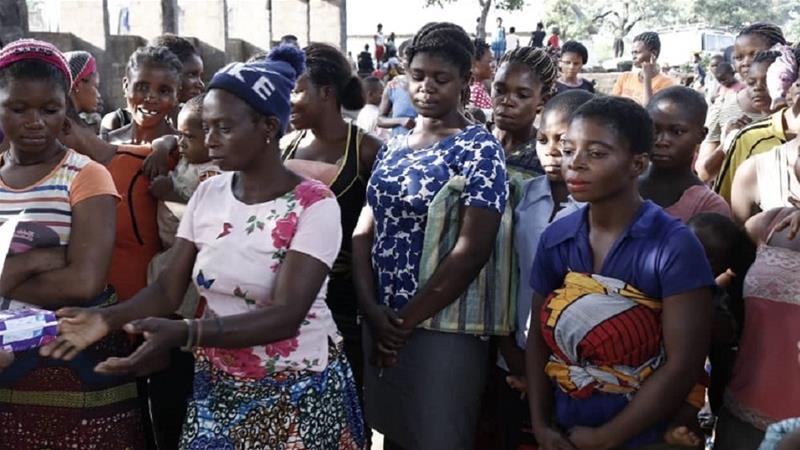
For most children, their birthday is a time of celebration. But that was not the case for Mirabel when she turned 10.
For Mirabel, a Cameroonian refugee living in Nigeria, turning 10 marked the start of gruelling daily torture – having her breasts ironed with hot stones by her mother.
Every morning, a neighbour from the refugee community where she lives in Ogoja, in Nigeria’s southeastern Cross River State, holds her legs firmly in place while her mother takes a burning hot pestle straight from the fire and presses it against her daughter’s chest in an attempt to flatten her breasts.
The procedure can be repeated for months, or even years, and is intended to either stop young girls developing breasts or to flatten them once they have.
“It feels like they are placing real fire on my breasts,” Mirabel says. “I have been in pain since the first day.”
Gender-based violence
Her mother, Angela, says the pain and discomfort her daughter is enduring worries her less than the reports she has heard of teenage girls being sexually harassed or exploited by men. She is determined to focus her efforts on making her daughter less desirable to men.
“I just don’t want her to become a target of boys around her,” says Angela. “I’m aware that many boys here like to chase after little girls.”
Although many of the families Al Jazeera spoke to mentioned the vulnerability of young girls growing up as refugees as one of the reasons for their decision to iron their daughters’ breasts, the practice has been happening in Cameroon for generations.
The origin of the practice is unclear, but about a quarter of women in Cameroon have undergone breast ironing, according to research by Gender Empowerment and Development (GeED), a non-governmental organisation based in Yaounde, Cameroon, which found that in nearly 60 percent of cases, the procedure is carried out by mothers.
The United Nations has described breast ironing as one of the most under-reported crimes associated with gender-based violence. It is thought to affect 3.8 million women globally.
‘No girl is safe here’
Like many other refugees in Cross River State, Mirabel and Angela fled the southwestern Cameroonian town of Akwaya for Nigeria after fighting broke out between government forces and English-speaking separatists who complain that they have been marginalised in the majority French-speaking country. The conflict has forced some 500,000 people from their homes and created a humanitarian crisis in the region.
According to the latest figures from the UN refugee agency (UNHCR), Nigeria currently hosts more than 50,000 refugees from Cameroon, with 70 percent of these in Cross River State. Roughly half the refugees live in one of four refugee settlements, while the rest live in host communities.
Angela and her daughter arrived in Ogoja in February 2018, joining thousands of other refugees taking shelter in the Adagom and Okende host communities where women and girls have reported being sexually harassed by members of the host communities as well as by other refugees.
“These days, you cannot step out of the house without meeting a man who is demanding sex or inviting you to his home,” says Queen, a 17-year-old girl who fled the southwestern Cameroonian border town of Mamfe with her parents for Adagom. “No girl is safe here.”
More than 12 Cameroonian girls living in settlements in Adagom and Okende told Al Jazeera that they are regularly sexually harassed by men.
“I needed money to buy sanitary pads, so I went to ask a man [in the community] for help but he started touching me as soon as I walked up to him,” says Lydia, a 16-year-old girl who lives in the Adagom refugee settlement. “I ran away as he tried to drag me to him.”
Worried about the safety of their 13-year-old daughter, Helen and her husband made the decision to iron her breasts after she reported that a man whose home she cleans regularly touched her inappropriately.
“The harassment she faced made our decision [to iron her breasts] easier,” explains Helen, who fled Akwaya and lives in the Okende host community with her family. “All we did was for her own good.”
But, Salome Gambo, a senior protection specialist at the Caprecon Development and Peace Initiative, which is based in Abuja but works on child protection in refugee camps across northeast Nigeria, says: “This practice just ends up harming children and putting them at risk of severe complications. Families should rather channel their efforts towards educating their daughters on sex issues.”
Source: https://www.aljazeera.com/indepth/features/girl-safe-mothers-ironing-daughters-breasts-200128130832821.html

